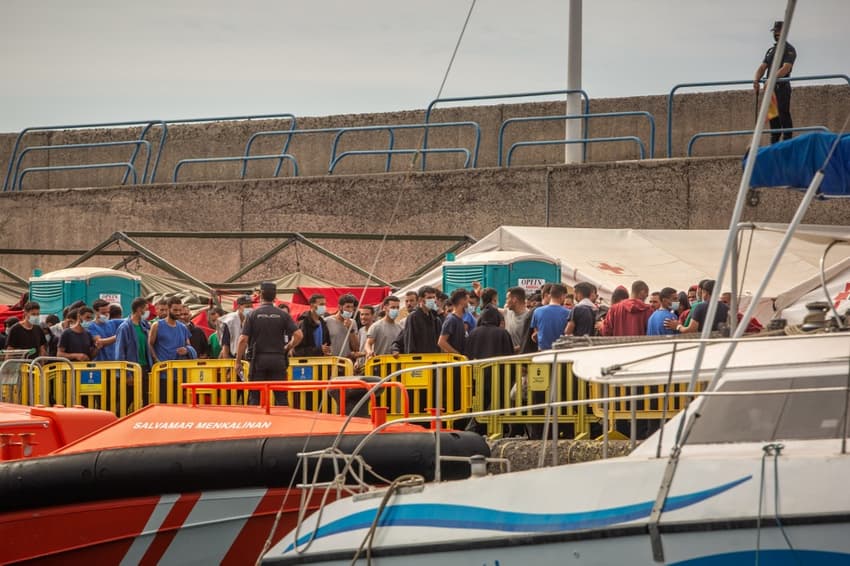Spain insists Canary Islands will not become a 'new Lesbos'

Spain's Canary Islands, facing a surge in migrant arrivals, will not become a "new Lesbos", Madrid said Monday in a
reference to the Greek island which has long been a main entry point for migrants into Europe.
Over 16,000 migrants have reached the Canary Islands located off the west coast of Morocco so far this year, ten times the number that arrived in the whole of 2019.
Reception centres on the archipelago -- better known as a European holiday destination -- are filled to capacity.
Hundreds of migrants have been put up in tents at the port of Arguineguin on the island of Gran Canaria, and some have been there for days, sleeping on the ground, according to human rights groups.
"It's an emergency situation," Interior Minister Fernando Grande-Marlaska said during an interview with private television station Antena 3.
"We are not going to turn the Canaries into a new Lesbos," he added.
The minister said the government intends to resume the repatriation of migrants who do not qualify for refugee status which has been interrupted since mid-March by the coronavirus pandemic.
Representatives from the International Organisation for Migration (IOM) and United Nations refugee agency UNHCR arrived Monday on the archipelago to evaluate the situation and "identify areas of cooperation" with the government to help, the two bodies said in a joint statement.
The route from western Africa to the Canaries is notoriously dangerous, but it has once again become popular with migrants as authorities have cracked down on other Mediterranean routes.
The archipelago has been a hotspot for migrants before -- in 2006, some 30,000 migrants managed to reach the Canary Islands before stepped-up Spanish patrols and repatriation agreements with African countries then slowed the pace.
READ MORE:
Comments
See Also
Over 16,000 migrants have reached the Canary Islands located off the west coast of Morocco so far this year, ten times the number that arrived in the whole of 2019.
Reception centres on the archipelago -- better known as a European holiday destination -- are filled to capacity.
Hundreds of migrants have been put up in tents at the port of Arguineguin on the island of Gran Canaria, and some have been there for days, sleeping on the ground, according to human rights groups.
"It's an emergency situation," Interior Minister Fernando Grande-Marlaska said during an interview with private television station Antena 3.
"We are not going to turn the Canaries into a new Lesbos," he added.
The minister said the government intends to resume the repatriation of migrants who do not qualify for refugee status which has been interrupted since mid-March by the coronavirus pandemic.
Representatives from the International Organisation for Migration (IOM) and United Nations refugee agency UNHCR arrived Monday on the archipelago to evaluate the situation and "identify areas of cooperation" with the government to help, the two bodies said in a joint statement.
The route from western Africa to the Canaries is notoriously dangerous, but it has once again become popular with migrants as authorities have cracked down on other Mediterranean routes.
The archipelago has been a hotspot for migrants before -- in 2006, some 30,000 migrants managed to reach the Canary Islands before stepped-up Spanish patrols and repatriation agreements with African countries then slowed the pace.
READ MORE:
Join the conversation in our comments section below. Share your own views and experience and if you have a question or suggestion for our journalists then email us at [email protected].
Please keep comments civil, constructive and on topic – and make sure to read our terms of use before getting involved.
Please log in here to leave a comment.